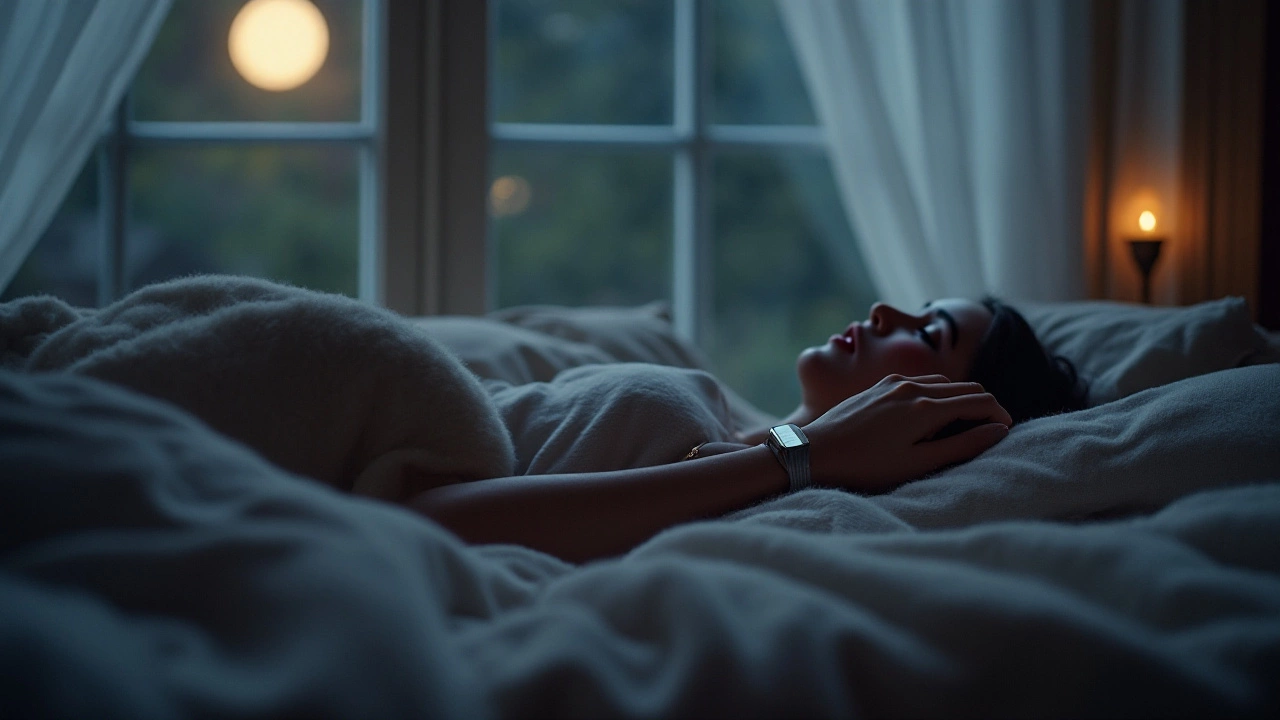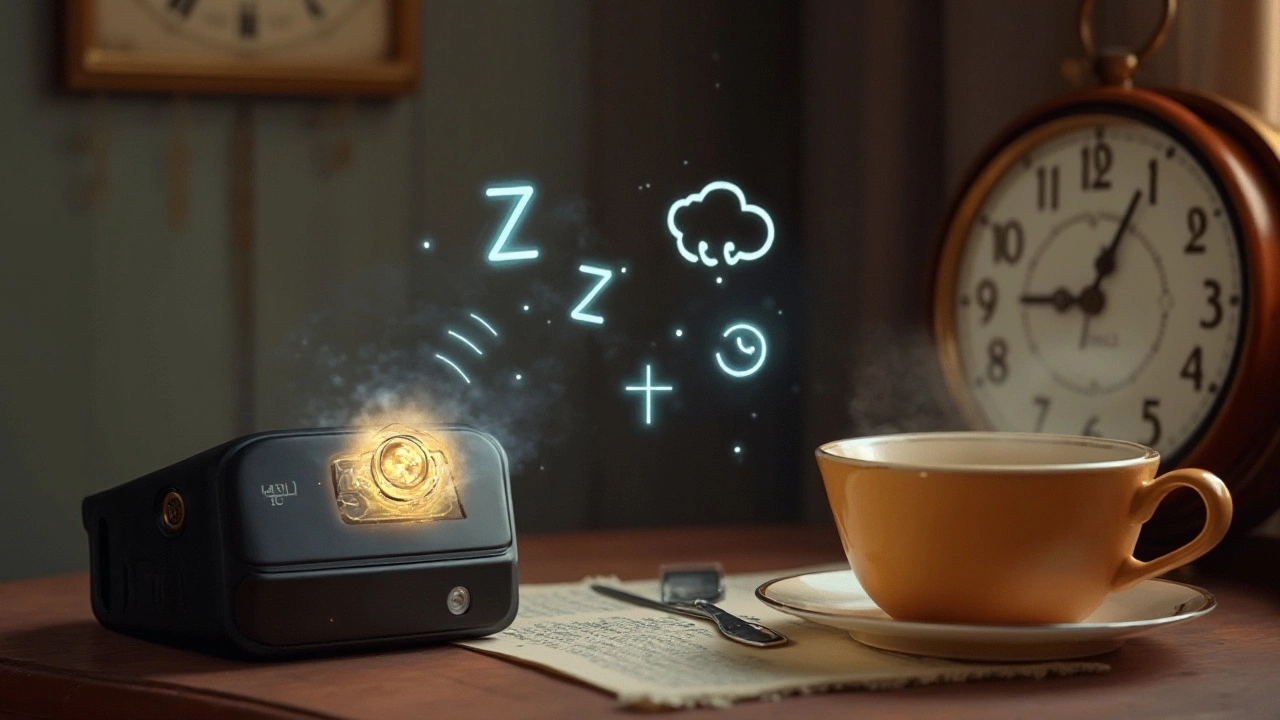
In the realm of wearable technology, Fitbits have become a ubiquitous tool for health and fitness enthusiasts. But a lingering question lingers for many: should you wear your Fitbit overnight? Making this decision requires a balance between gaining insights into your sleep patterns and personal comfort.
The modern Fitbit offers a window into your sleep cycle, tracking everything from light sleep to those blissful deep sleep stages. By wearing it overnight, you open up a world of data that can help improve your sleep quality and overall well-being. Yet, it's important to weigh this against any potential concerns, including comfort during rest and possible exposure to electromagnetic frequencies (EMF).
Dive into the world of sleep tracking with your Fitbit, understand the benefits and challenges, and discover tips for ensuring your wearable device doesn't disrupt your dreams. Ultimately, whether or not to wear your Fitbit to sleep comes down to personal preference and the value you place on the information it gathers overnight.
Sleep tracking has emerged as a vital context in understanding our health and wellness. As more individuals struggle with sleep disorders or suffer from insufficient rest due to busy lifestyles, solutions like Fitbit have been embraced enthusiastically. These devices serve as night-time companions, revealing sleep stages we previously were unaware of, transforming how we perceive our restorative hours. Sleep tracking involves the utilization of sensors to monitor movements and physiological signals to provide insights into sleep cycles, including stages such as light, deep, and REM sleep. Wearing devices like Fitbit often becomes the first step toward implementing positive changes. Many users report enlightening discoveries concerning the adequacy of their rest, once thought to be optimal, but revealed as subpar through the illumination that data provides.
Researchers and medical professionals have emphasized the benefits of understanding sleep patterns, as this knowledge can unravel the mysteries of poor sleep quality. One of the most compelling aspects of sleep tracking is its capability to provide data-led insights that can guide lifestyle changes, from altering bedtime routines to identifying the impacts of specific habits such as caffeine consumption or screen time before bed. Some studies have made it clear that sleep is not just rest, but a crucial pillar supporting mental resilience and physical health. In fact, consistently failing to meet the recommended 7-9 hours can lead to significant health issues. Tools like Fitbit provide users with a reflective surface, allowing recognitions previously unnoticed.
"Understanding sleep patterns allows individuals to make informed decisions, which are often the key to enhancing sleep quality and, ultimately, life quality," notes Dr. Matthew Walker, a renowned sleep expert and author of 'Why We Sleep'.
Modern wearable devices boast an array of sensors including accelerometers, heart rate monitors, and more recently, blood oxygen level sensors, to capture the nuances of sleep stages accurately. These gadgets give users a private look into the unconscious hours that massively impact their daylight hours. The allure lies in a promise of agency over one’s health. Fitbit transforms data into charts and insights, embodying the bridge from ignorance to enlightenment about what it means to achieve truly restorative sleep. A recent survey reported that users who engage with their sleep tracking data regularly tend to feel more equipped to tackle morning productivity hurdles and report enhanced moods throughout their waking hours.
This component of wearable technology provides opportunities for utilizing a curiosity-driven approach to one’s health—a venture of discovery that can unearth the deeper reasons behind daytime fatigue, mood swings, or even weight control challenges. Enabling insights into one’s vital sleeping patterns positions sleep tracking as a revolutionary mechanism in health management. For many, understanding sleep phases unlocks the potential to transform not just sleep but also the broader well-being.
Slumber is a precious commodity in today's fast-paced world, and understanding its nuances can be profound. By wearing your Fitbit to bed, you engage a tiny piece of technology that packs considerable punch when it comes to monitoring your sleep health. It offers detailed insights into your sleep stages, analyzing when you're in light, REM, and deep sleep, which can be crucial in pinpointing sleep-related issues. This data isn't just a nice-to-have; it's transformative. Imagine a report card for your sleep patterns, allowing you to identify trends over days, weeks, and even months.
What sets the Fitbit apart is its ability to track your heart rate variability and breathing disturbances that happen when you drift off. With this information, it becomes possible to tie certain lifestyle habits, like that midnight snack or screen time right before bed, to how well you're catching those Z's. Such feedback creates a loop of improvement, linking daily habits directly with nightly rest. Insights from this data have empowered users to make informed changes, like adjusting their sleep schedule or optimizing their bedroom's environment, leading to more refreshing sleep. It's fascinating how a small device can guide substantial lifestyle shifts.
"Properly understanding your sleep patterns through devices like a Fitbit can provide the clarity needed to change longstanding habits," says Dr. Michael Breus, a clinical psychologist and sleep expert. "It helps personalize your pathway to better sleep."
The sheer convenience of the fitness tracker resting on your wrist as you slip into dreamland means you're unconsciously collecting vital health data every night. For those who suffer from sleep disorders, especially sleep apnea, more advanced Fitbits have oxygen level tracking features, providing crucial information that might otherwise require specialized medical equipment. By viewing trends in your sleep score, users can even identify potential health concerns that warrant a conversation with a healthcare provider. It's this proactive approach that empowers—helping nip minor sleep disturbances in the bud before they bloom into significant health issues.
It's fascinating to consider the journey from sound asleep to refreshed awakening through the eyes of a fitness tracker. Studies have shown that proper sleep cycles correlate with improved mood, sharper cognitive function, and even weight management. By regularly wearing your Fitbit to bed and gaining an understanding of these cycles, you may uncover hidden truths about how you rest. Users often find themselves pleasantly surprised at the tangible, positive impacts on their daily lives, ranging from enhanced productivity to emotional well-being.
Much more than just a luxury, wearing a Fitbit at night is like enlisting a personal sleep coach, guiding you towards healthier rest habits and offering invaluable insights without any conscious effort required from you. So, next time you find yourself wondering about your sleep quality or wrestling with fatigue, consider strapping on that Fitbit before bed. The data it avails isn't just numbers—it's knowledge, and knowledge is power.

Venturing into the idea of wearing a Fitbit to bed introduces several considerations that merit attention. One primary concern is comfort. As you settle into bed after a long day, the weight and construction of a fitness tracker, though minimal, might feel intrusive. The straps could dig into your skin or become irritating over extended periods, especially for those who move around a lot during sleep. This can lead to poor sleep quality, contrary to the intended purpose of enhancing sleep awareness. Many users have reported the importance of finding the right strap fit, suggesting a balance tight enough to capture accurate data but loose enough to allow for a comfortable sleep.
Health-conscious users often express concerns about potential electromagnetic frequency (EMF) exposure. While the World Health Organization maintains that exposure levels from devices like Fitbits, which are low-powered and intermittent, do not cause harm, some individuals prefer limiting EMF exposure, particularly during sleep. For those who prioritize this concern, it may be reassuring to know that the Bluetooth connectivity can usually be turned off overnight, minimizing potential risks while still allowing data collection.
Battery life can also influence whether you decide to sleep with your Fitbit. Older models might not last long enough for a full day plus sleep tracking, necessitating regular charging periods that might mean skipping overnight wear occasionally. Yet, most modern models have improved significantly, offering multi-day battery life that supports a complete 24-hour cycle. Planning a charging schedule that aligns with your daily routine can ensure your fitness tracker supports your goals without interruptions.
For some, the habit of checking data or notifications on a Fitbit may disrupt wind-down routines. The subtle light from the display or notifications might tempt midnight data peeks, potentially detracting from that crucial unwind period before actual sleep occurs. Setting boundaries, such as do-not-disturb modes, can help mitigate these interruptions and ensure the sleep tracker serves its purpose without becoming a distraction.
"It's crucial to understand that technology should serve as an aid in fostering better sleep habits, not hinder them," says Dr. Jennifer Martin, a prominent sleep expert. "Awareness of how devices affect your night routine is key."
Lastly, consider any skin sensitivities. Constant skin contact with the sensor and strap material can sometimes result in irritation, rashes, or sweat buildup. Regularly cleaning your Fitbit, alternating wrist placement, and ensuring it's made from hypoallergenic materials can help alleviate these concerns. Ultimately, deciding to wear your Fitbit to bed is a balance of understanding your personal needs, lifestyle, and how best to integrate technology into your nightly routine without it becoming intrusive.
Wearing a Fitbit to bed can be a curious experience. While the allure of tracking your sleep patterns is tempting, it's essential to ensure your time in dreamland is as comfortable as possible. The goal is to seamlessly integrate the device into your routine without it becoming a nightly nuisance. Selecting a tracker model with a lightweight design can significantly enhance comfort. Thankfully, many modern Fitbits are crafted to be unobtrusive, making it easier for wearers to forget they're even on their wrists. Prioritizing a snug yet loose fit can avoid pins and needles from cutting circulation overnight.
A simple yet effective tip is to charge your Fitbit before bedtime, minimizing low-battery alerts disrupting your sleep. It's worth noting, consistent sleep tracking can paint a clearer picture. Consistency helps in gathering accurate data over time, leading to insights that can aid in adjusting your sleep habits. Remember, your sleep tracking companion is there to empower, not interfere. Make sure the band is clean and dry, as sweat or moisture could cause skin irritation over long periods. Opt for a fabric or silicone band that reduces friction while you sleep.
Sleep tracking tip lists wouldn't be complete without mentioning potential EMF exposure. Although low, some individuals prefer caution and opt to place their device in a sleep mode that reduces wireless signal generation. Listening to your body is crucial; if you find it uncomfortable, it's perfectly fine to skip tracking on some nights.
According to sleep research scientists, "Quality sleep is about feeling well-rested when you wake up, regardless of what the numbers say."Only emphasize the data that are helpful for your unique situation. Exploring relaxation techniques can also be valuable, as a calm mind can enhance the effectiveness of sleep data captured. Relaxation routines might include a short meditation, a warm bath, or switching off electronic devices one hour before sleeping.
For those new to the world of wearable device technology, starting with manual logs of your pre-sleep activities alongside automatic sleep tracking data could provide extra insights into your nightly patterns. Over time, you'll discern any trends between lifestyle choices and your sleep quality. Another useful tip lies in utilizing the gentle vibration alarm feature present in most Fitbits. This can aid in waking gradually without a jarring noise, enhancing your morning routine. Prolonged use can spotlight areas for improvement, such as altering caffeine intake or adjusting your sleep environment, leading to more restorative sleep periods.

As you stand at the crossroads of whether or not to wear your Fitbit to bed, you're faced not only with a matter of personal preference but one of understanding how this small device fits into the jigsaw puzzle of your health. Sleep, after all, is the uncharted watery depths of our daily routine, and peering into it with the lens of a fitness tracker can offer revelations you never knew you needed. Many users find their Fitbits to be an insightful companion, affording glimpses into their sleep patterns that were previously shrouded in mystery. This insight can assist you in pinpointing aspects of your lifestyle that need adjustment for better rest, which in turn pays dividends in the energy and vitality you experience throughout your waking hours.
However, your comfort and peace of mind should also weigh heavily in this decision. While the newest models of wearable devices are designed with ergonomics in mind, certain individuals may still find the sensation of wearing a gadget overnight to be intrusive. Some users also express concerns about exposure to electromagnetic frequencies emitted from such devices, a topic on which research is ongoing. According to a 2021 study published in the Sleep Health journal, the benefits of sleep tracking were shown to encourage healthier sleep habits in 73% of participants, showcasing an upside that warrants consideration.
"When used responsibly, sleep-tracking devices can offer valuable understanding of sleep patterns, helping individuals to improve sleep quality," claims Dr. Jane Terrence, an expert in chronobiology from the University of Sydney.Ultimately, your choice depends on what you hope to achieve. If detailed sleep data fosters behaviors that improve your nightly rest, bearing the sensation of a wristband is worthwhile. However, if you prioritize unperturbed sleep and feel you've gleaned sufficient insight, allowing your wrist a break is also a sound choice. Each person's sleep journey is as unique as their fingerprint, requiring a personalized blend of comfort and information. The key is to experiment thoughtfully and listen to your body as it whispers its needs in the dead of night.